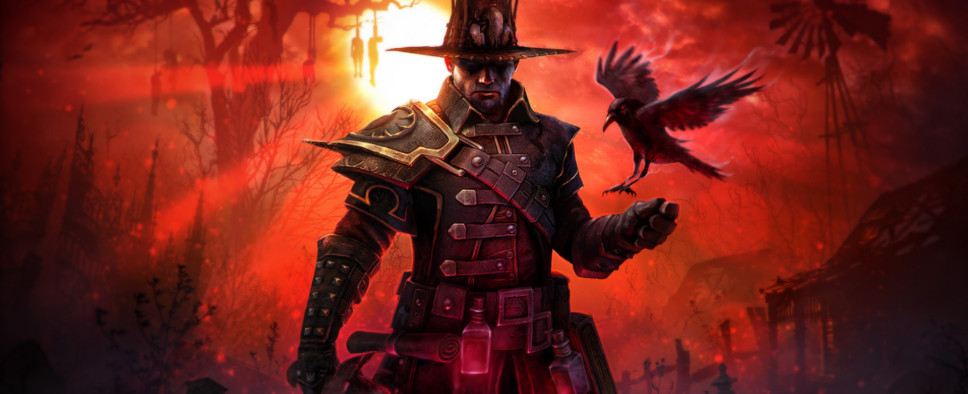Grim Dawn Review
-
Category: ReviewsHits: 17326

Article Index
Introduction
Grim Dawn is the debut effort from Crate Entertainment, a small developer with ties to Blizzard Entertainment, Iron Lore Entertainment, and Irrational Games, including Arthur Bruno, who was the Lead Gameplay Designer for Titan Quest and its Immortal Throne expansion pack. Grim Dawn takes place in an alternate reality where two factions, the Aetherials and the Ch'thonians, are at war with each other. Both factions have uses for humanity -- the Aetherials can take over human bodies and force them to do things, while the Ch'thonians require lots of blood for their magic -- and so that leaves humanity in a bad place, where most people are just trying to hide and survive.
As the game opens up, an Aetherial takes control of your body, but when you're captured by a group of survivors, the Aetherial flees, leaving your newly-infused body behind. The Aetherial remnants make your body much more powerful than it was before -- to the point where you can now single-handedly defeat hordes of Aetherials and Ch'thonians, and perhaps save the day. Such is life in an action role-playing game.
Character Development
At the start of a new game of Grim Dawn, you have to create a character, but there isn't much for you to do right away. You choose a name and a gender, but that's it. You don't roll your stats, you don't alter your appearance, and you don't even select a portrait. But at Level 2 you choose one class for your character, and at Level 10 you choose another, and it's these class choices along with your skill choices that define who you are.
Grim Dawn has six classes. Arcanists are elemental spellcasters, Demolitionists work with fire and explosives, Nightblades are dual-wielding assassins, Occultists are summoners and cursers, Shamans are nature spellcasters and two-handed weapon specialists, and Soldiers are tanks proficient with weapons and shields.
Each class gets a tree of about 30 skills. Some of these skills are passive while others are active, and some only have one rank while others have ten or more. The only prerequisite for the skills is your mastery with the class. For each level you gain, you earn 2-3 skill points, and you can place these points into the skills or the class mastery. Characters only earn about 220 skill points before they hit the maximum level (85), but between the skills and the class mastery, each skill tree can support somewhere around 400 points. So between the two classes, you have to decide where to place 220 points in a field of 800 possibilities, which means you have to figure out which path you want your character to make. Luckily, if you make a mistake, or if you decide that a skill isn't as useful as you thought it might be, it's easy to re-spec your points, so there isn't any harm in experimenting.
Along with class skills, there are also celestial powers that you can claim. As you play through the campaign, you sometimes come across desecrated shrines, and as you cleanse these shrines, you earn devotion points, which you can spend on the powers. The powers are divided into somewhere around 100 constellations, each with multiple powers, and since you can only earn at most 50 devotion points during the course of the game, this is another area where you have to make some tough choices -- and ideally plan ahead.
The attributes in the game are on the minimalist side. Characters have Physique (defensive ability), Cunning (offensive ability), and Spirit (energy and magic damage). Each time you gain a level, you can upgrade one of these attributes, but you also gain bonuses to them when you advance your class masteries. Obviously, some classes need certain attributes more than others, but since the attributes are also linked to equipment requirements -- Physique for armor, Cunning for guns, and Spirit for jewelry -- you can't just ignore any of them.
In general, I found the character development system to be the best part of Grim Dawn. You're given all sorts of options for how to build your character, and even if you meet another character who uses the same classes as you, you're not very likely to be carbon copies. I always like it when games give you enough options that you can obsess about which build is the best, and Grim Dawn has that in spades.


